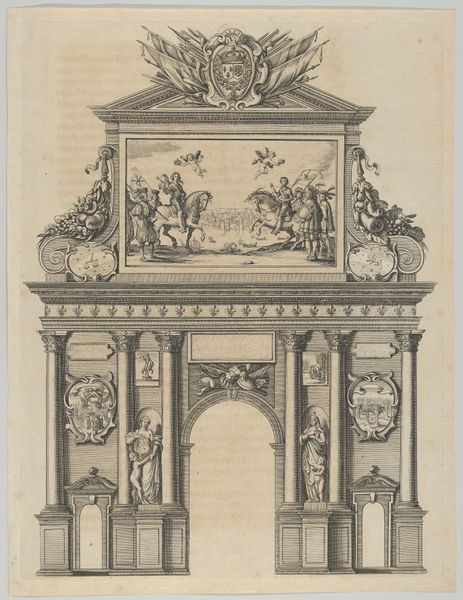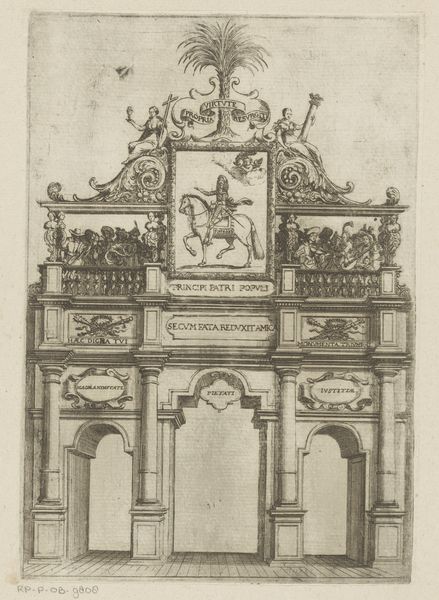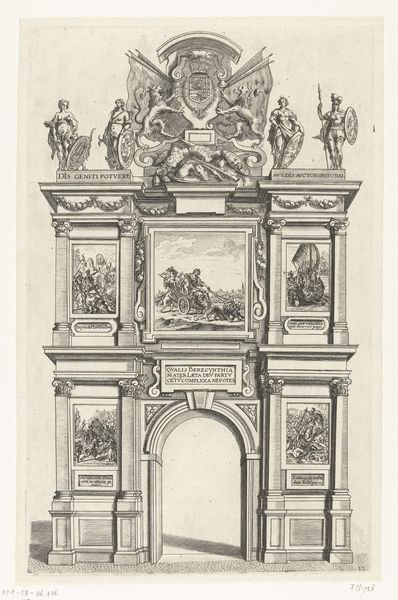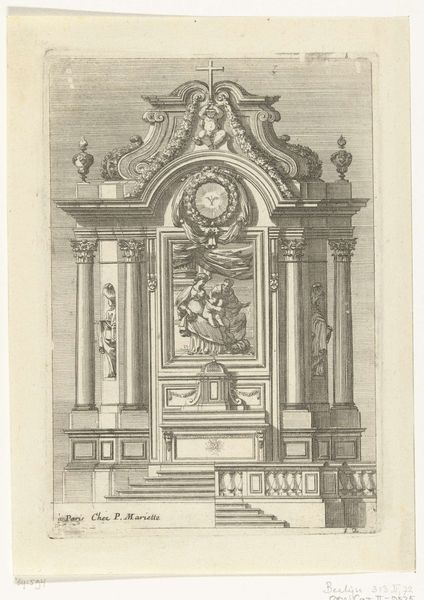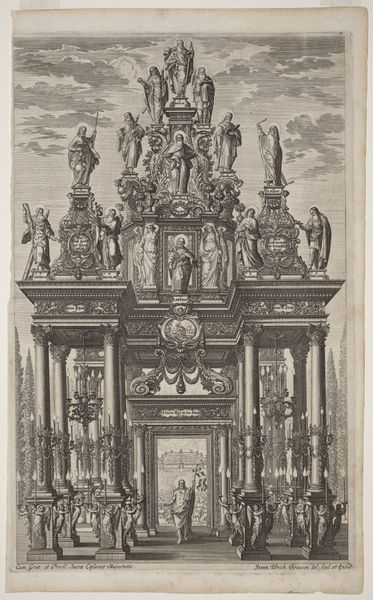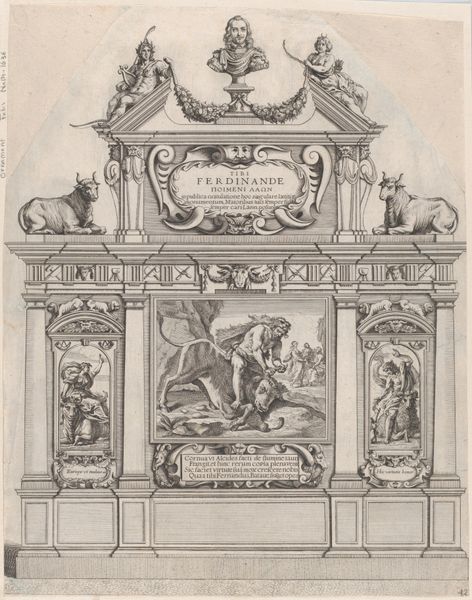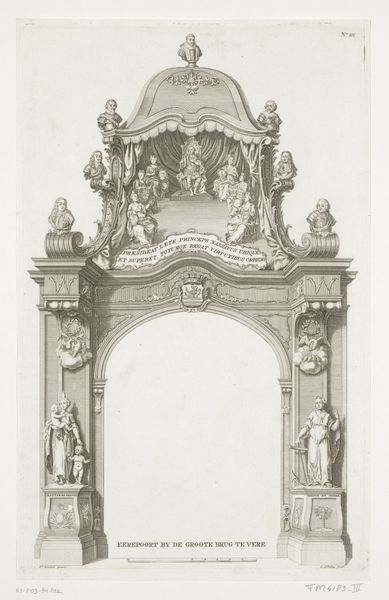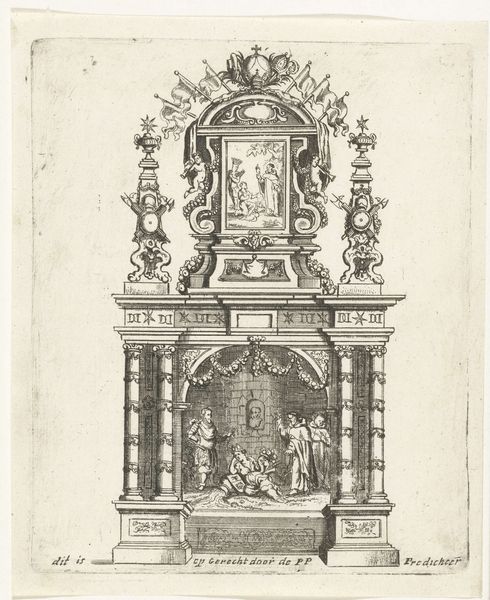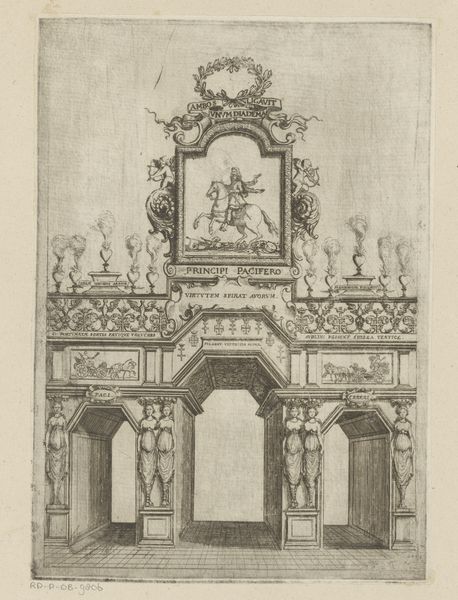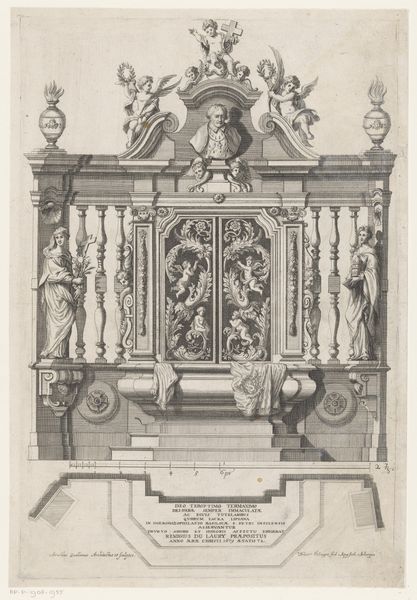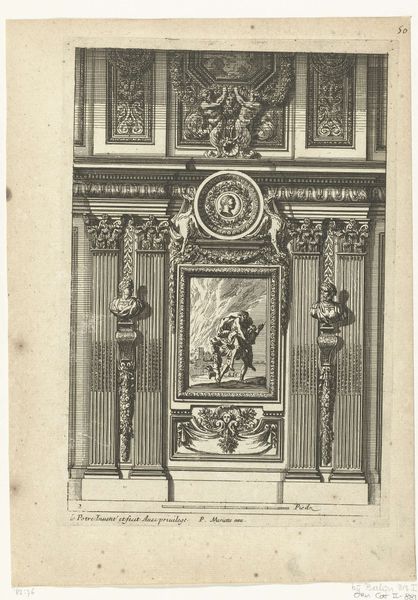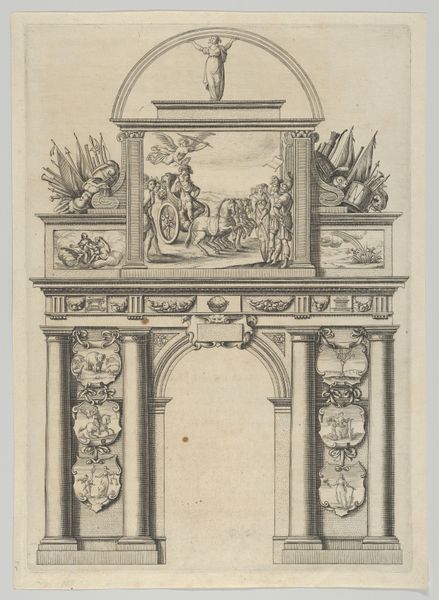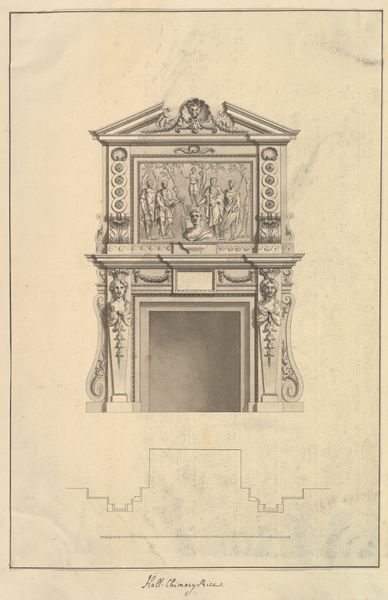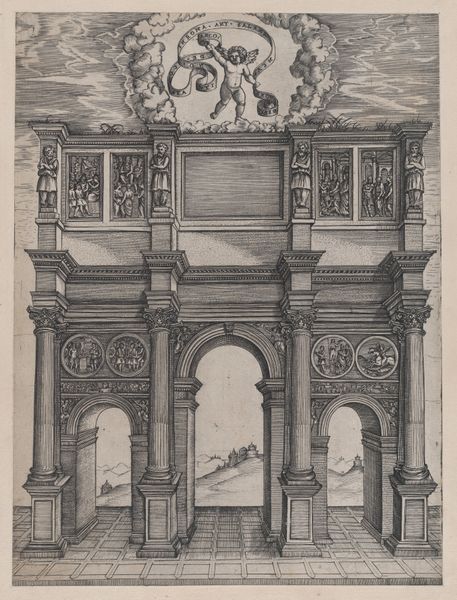
Plate 27: Triumphal arch, elevation of the back, surmounted by allegorical figures and decorated with scenes from Roman mythology and history; from Guillielmus Becanus's 'Serenissimi Principis Ferdinandi, Hispaniarum Infantis...' 1636
0:00
0:00
drawing, print, engraving, architecture
#
drawing
# print
#
11_renaissance
#
history-painting
#
engraving
#
architecture
Dimensions: Sheet (Trimmed): 20 13/16 × 12 13/16 in. (52.9 × 32.5 cm)
Copyright: Public Domain
Johannes Meursius created this print, “Plate 27: Triumphal arch, elevation of the back…” probably in the mid-17th century. It is an engraving of a triumphal arch, a monument that would have been erected to celebrate a military victory or other significant event. The arch is adorned with allegorical figures and scenes from Roman mythology and history. Consider the historical and cultural context: the Dutch Republic was emerging as a major power, asserting its identity through art and architecture. Prints like these served as propaganda, reinforcing notions of power, legitimacy, and cultural superiority. The imagery evokes a sense of grandeur, intended to inspire awe and reverence. Notice how the arch creates a space of passage, a threshold between different realms. It speaks to the complex relationship between power, representation, and the construction of collective identity. It invites us to consider the stories we tell ourselves about who we are and where we come from, while also questioning whose stories are privileged and whose are marginalized.
Comments
No comments
Be the first to comment and join the conversation on the ultimate creative platform.
